Health
Dr. Achola’s PhD Study Uncovers Family Planning Barriers in Adjumani refugee hosting district
Published
6 months agoon
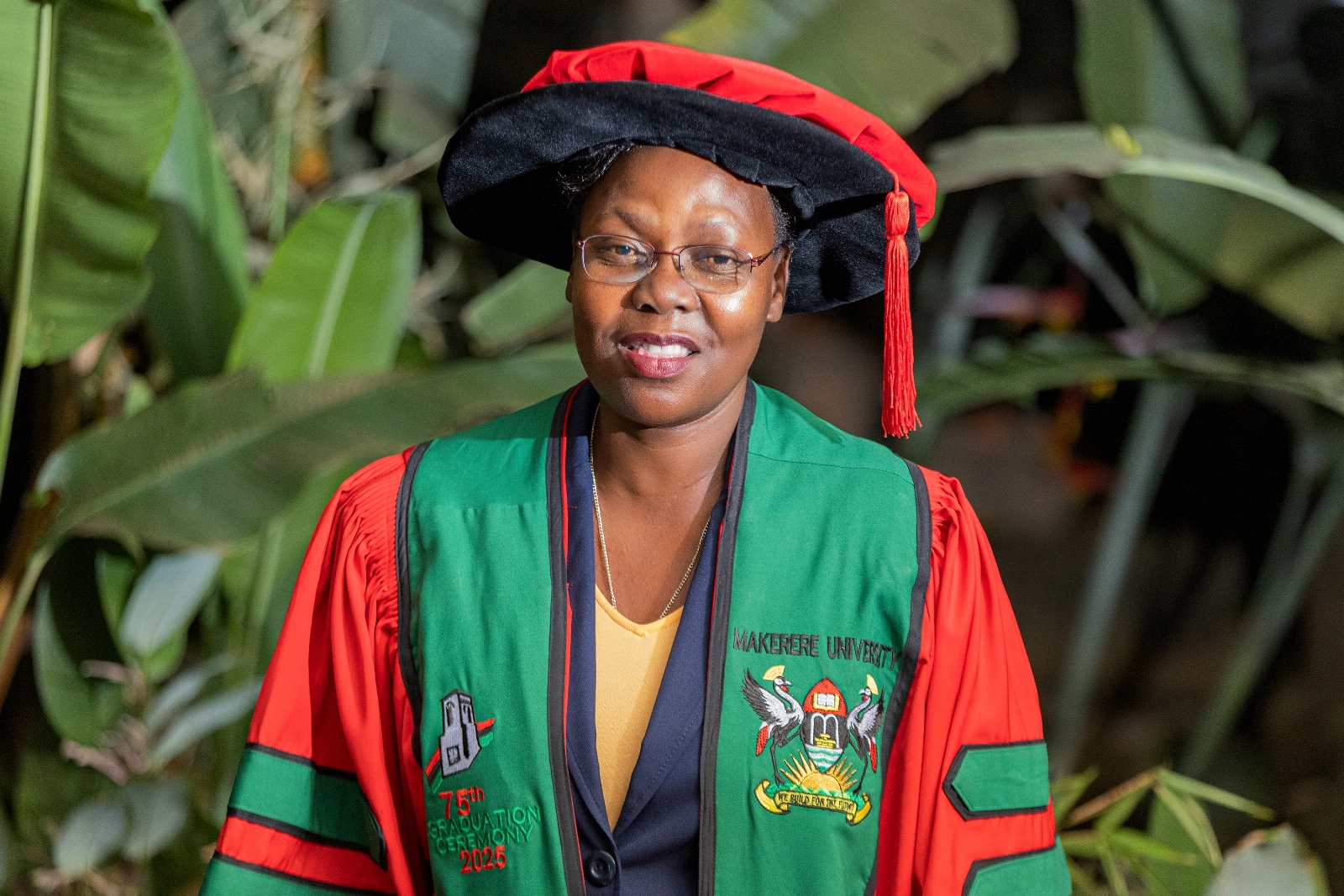
At precisely 10:53 AM, on 14th January 2025, the air in Freedom Square buzzed with anticipation as Dr. Crispus Kiyonga, Chancellor of Makerere University, delivered the life-changing words: “By virtue of the authority entrusted to me, I confer upon you a degree of Doctor of Philosophy of Makerere University.” In that moment, Miss Achola became Dr. Achola, a title that resonated deeply with her sister and father, Ms. Evelyn Nyafwono and Mr. Owino Vincent Olele, who stood nearby joyfully with open arms to receive her.
As Achola bagged her doctoral award, she walked majestically toward her excited lecturers and mentors, who eagerly queued to congratulate her. Her sister, Evelyne Nyafwono, and father, Mzee Owino, could hardly contain their excitement. The rhythmic beats of the cultural ensemble filled the air with celebration, while the vibrant melodies of ethnic music and dance, expertly crafted by Dr. Milton Wabyona and his talented team, wove around her. Each step she took was a heartfelt tribute to her journey, a celebration of hard work and achievement that enveloped her in warmth and joy.
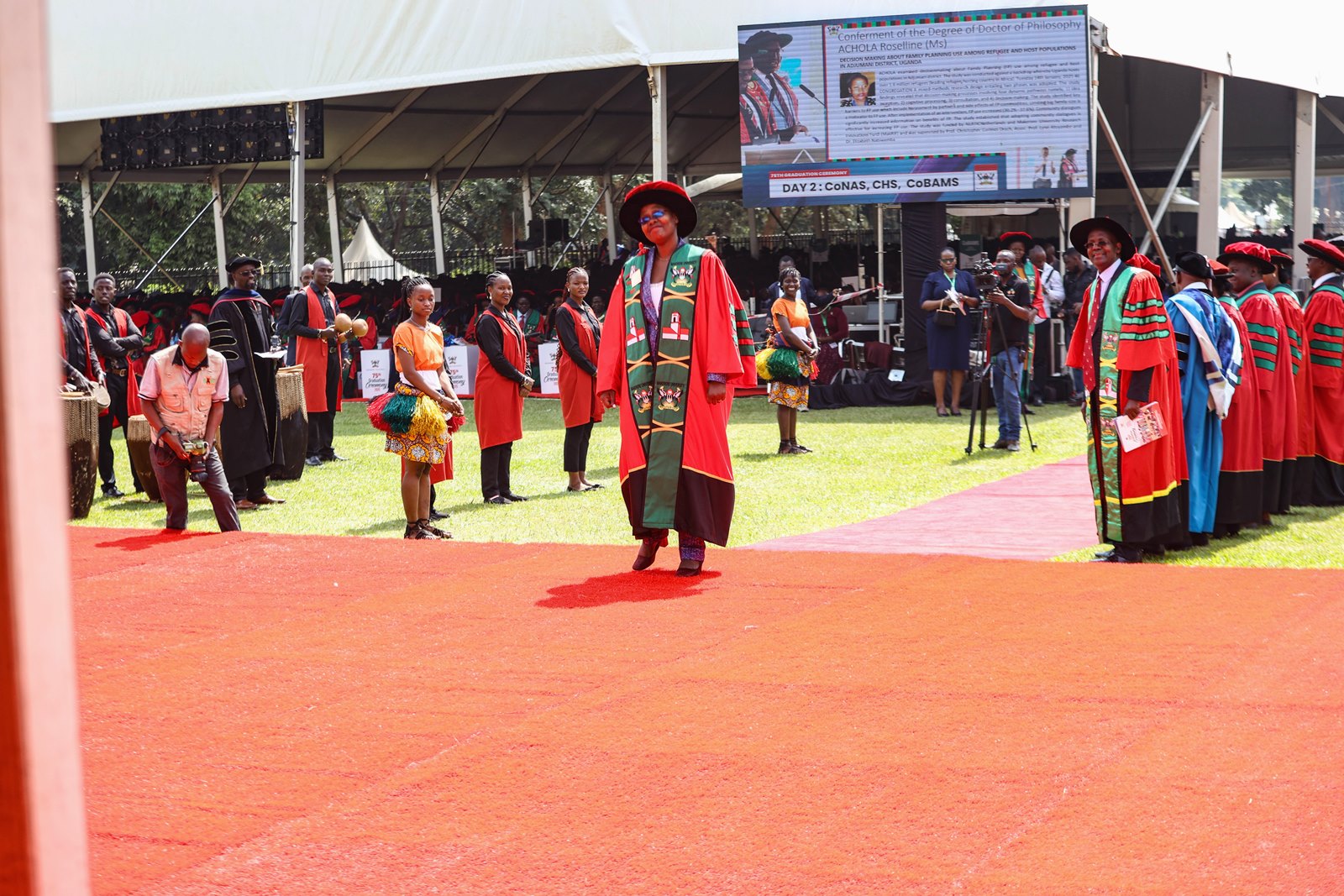
Yet, as Dr. Achola reveled in her triumph, a bittersweet shadow hung over her heart. Her beloved mother, Veronica Abbo Owino (RIP), who had always been her greatest supporter, was not there to share in the joy, having passed away midway through her PhD journey.
In the beginning…
Back in time, 2015 was the year. Ms. Roselline Achola, while working with the United Nations Populations Fund as a Technical Specialist for Maternal Health and Reproductive Health Commodity Security/family planning, was charged with the responsibility of ensuring that there is increased access to voluntary information and services to both men and women who need family planning in Uganda and beyond. She was in charge of the Global Program for RHCS.
At the time, as a team leader, she was supervising an assignment that the UN had contracted an expert – Dr. Christopher Garimoi Orach, a Professor of Community Health, to undertake in developing the first family planning costed Implementation Plan for Uganda.
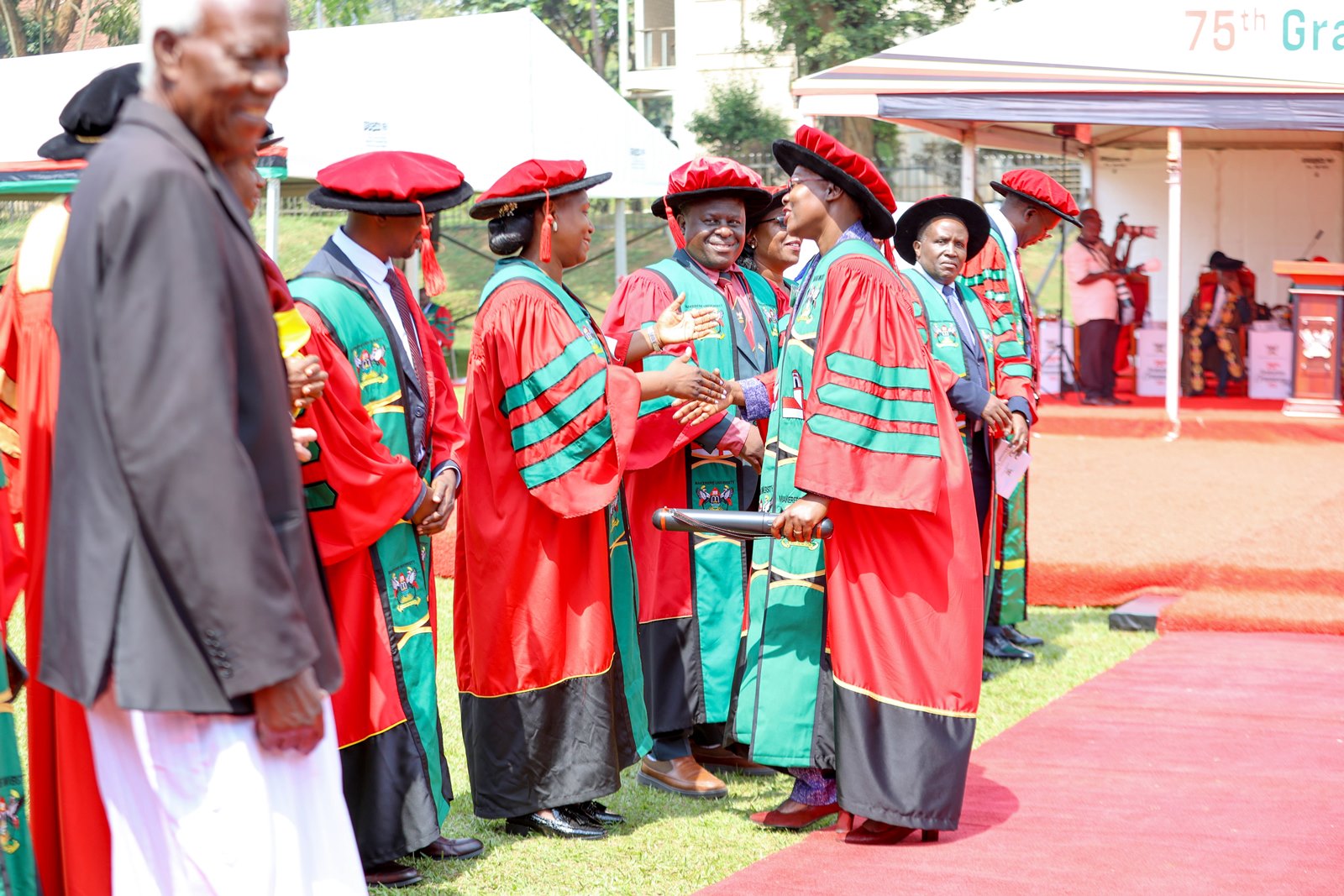
Achola found her motivation for pursuing a PhD, particularly in family planning, due to its cost-effectiveness in improving maternal and child health in resource-limited countries like Uganda.
“We began with the ambitious idea of evaluating the entire family planning program in Uganda, but that proved impossible at the time. I then went silent for two years, not mentioning anything. One day, Prof [Garimoi Orach] called to ask why I was quiet. I explained that I was overwhelmed with UN work and may not manage to juggle with academics. He fell silent too but continued to check on me and offered encouragement,” Achola recalls.
“Why family planning? It was my mandate to ensure the effective implementation of the family planning program in Uganda by supporting the Ministry of Health and implementing partners. I always felt a deep sadness reading about women dying in childbirth while having their 12th or 13th child, knowing that contraception could help them regulate their births and reduce the risk of dying from pregnancy-related complications associated with too many pregnancies,” recalls Achola.
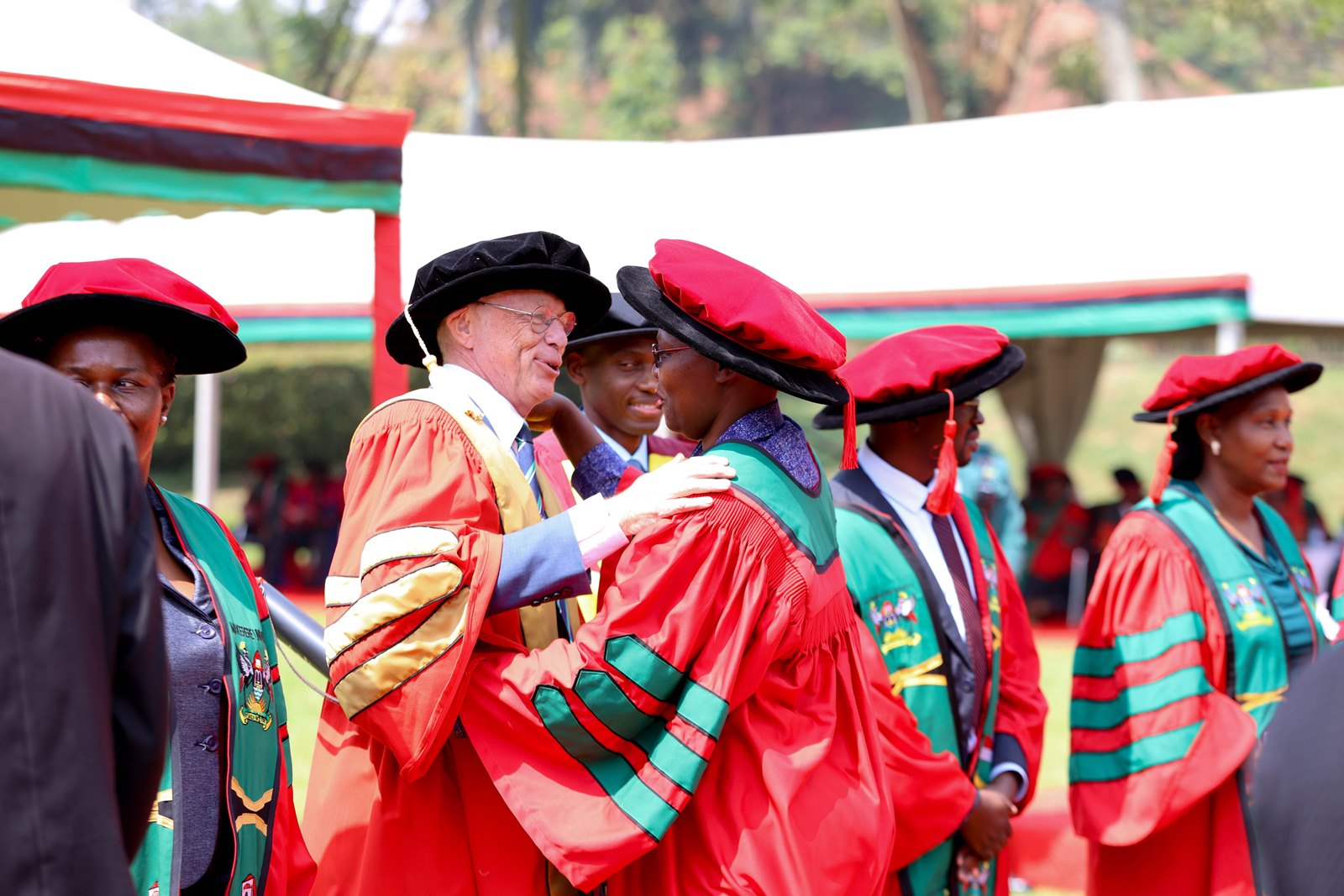
In 2019, she officially enrolled in the PhD program at Makerere University hosted by the Department of Community Health and Behavioural Sciences at the School of Public Health (MakSPH). This was after submitting a concept that was quickly approved, granting her provisional admission. “It wasn’t an easy path though; I remember going nearly a year without progress until my lead supervisor encouraged me to continue working on my proposal. I had almost lost hope due to the demands of my job at the United Nations and had set aside my academic aspirations. This burden weighed heavily on me until I resumed my efforts, ultimately leading to the acceptance of my proposal.”
Inspired by the challenging conditions in Adjumani district in the West Nile region with several refugee settlements—where low family planning uptake and domestic violence related to its use were prevalent—Achola chose to study decision-making around the issue especially in Nyumanzi, Pagirinya and Mirieyi settlements including the surrounding host communities. Her goal was to develop recommendations to address the barriers faced by women and girls in these refugee-affected areas.
Uganda is a leading Africa’s largest refugee-hosting country with more than 1.6 million refugees residing in various settlements established in 12 districts within its borders, as per the latest National Population and Housing Census data from 2024. Adjumani is home to over 250,000 refugees, with more than half of them being female. Here, 1,310 respondents comprising both men and women were involved in the quantitative study.
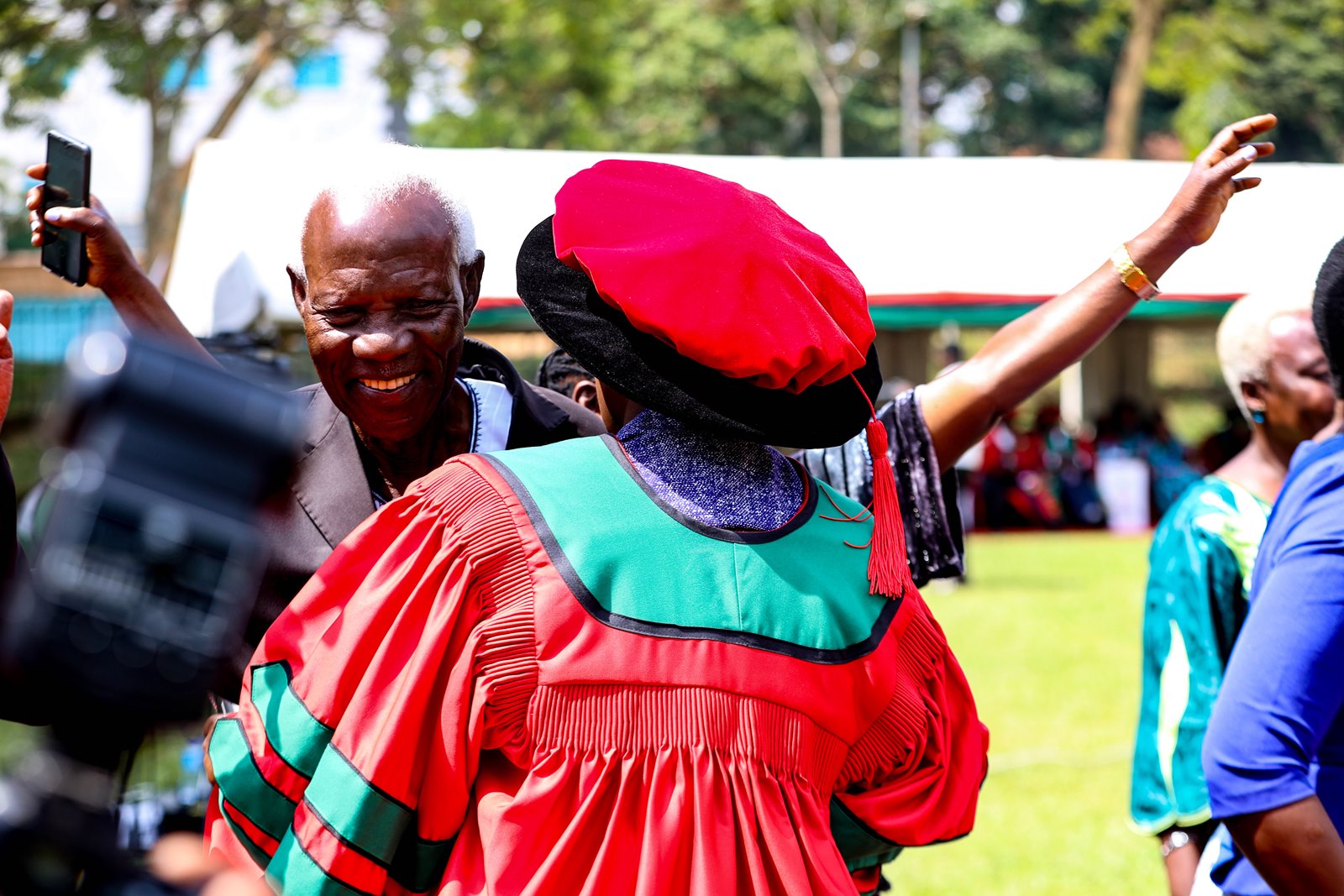
The major highlight of her research was the low uptake of family planning methods in Adjumani, where only about one-third of the population utilizes modern contraceptives. She explored decision-making processes at individual, family, community, and institutional levels, identifying key factors influencing family planning use.
Her findings show that fear of harassment from family members and concerns about side effects deter many from using contraceptives, while motivations include limiting family size and financial constraints. To enhance family planning uptake, Dr. Achola recommends community outreach strategies to raise awareness about its benefits and promote couple counseling.
“I want to take this opportunity to once again thank SET SRHR for the scholarship that saw progress this far, the Tuition and initial research was supported by SET SRHR. The Mak-RIF support was equally timely because it supported the intervention and evaluation components of my PhD study. Both funds played a big role in enabling me to complete this study and have the achievement today,” says Achola.
While decision-making is a key part of everyday life, Dr. Achola found that it involves complex processes with four dynamic pathways: starting ideas, thinking them through, consulting others, and finally making a decision. Gender dynamics too play a definitive role in contraceptive use, as women often have less power and men typically dominate health decisions.
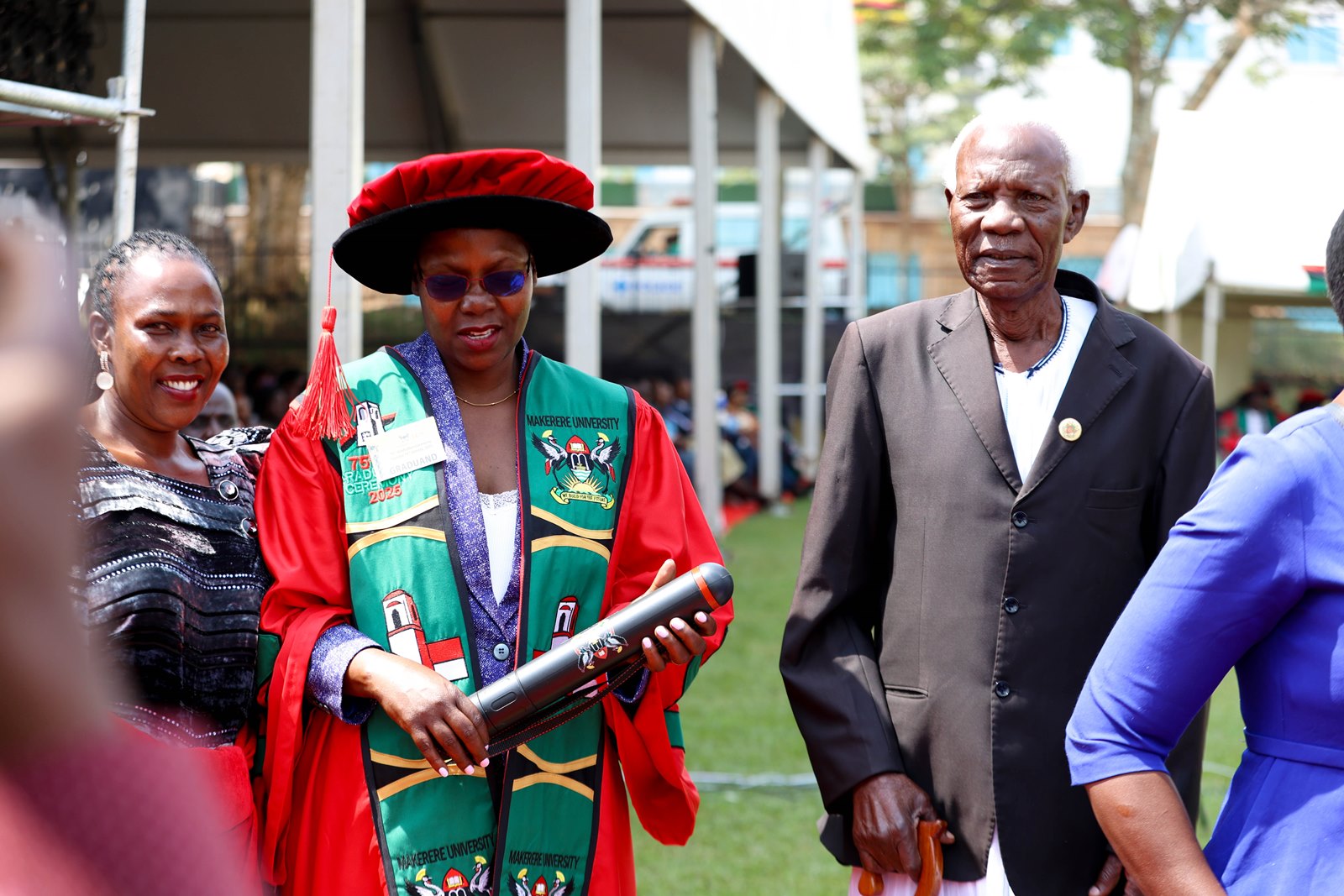
“I am so excited that my work has resulted in the development of a model for decision-making pathways. These include the idea inception, cognitive process, consultation, and making a decision I sincerely hope that this contribution will enhance the improvement of maternal and child health in humanitarian settings across Uganda and Sub-Saharan Africa, ultimately reducing pregnancy-related deaths associated with the non-use of family planning among both refugee and host populations,” says Achola.
At first, the language barrier stood in her way during her investigation with interpreters often sharing only what refugees wanted to hear instead of her intended messages. “Cultural norms favoring large families made it hard to communicate contraception information. Limited funding also slowed our progress in Adjumani. Although delays in getting my papers published affected my PhD requirements, I’m relieved that it’s finally complete and here we are,” she says.
How her PhD will impact family planning programs in Uganda
Dr. Achola’s research uncovered several key factors influencing contraception use, highlighting a pressing need for targeted solutions. To make a meaningful impact on family planning programs in Uganda, she advocates for community-based strategies that connect people with essential information and services to help them make informed decisions. She views community dialogues and outreach events as vital tools to spark conversations about the benefits of family planning and encourage couples to seek counseling together. “This approach will be instrumental in creating a supportive environment where families can make informed decisions about their health and future.”
With her background as a public health specialist and technical advisor to the Ministry of Health on family planning, she is eager to integrate the four decision-making pathways into all family planning efforts. She recognizes how influential significant others can be in shaping contraceptive choices, whether through encouragement or hesitation. By involving them in the planning process, she aims to develop more effective strategies and hopes her recommendations will be included in the Ministry of Health’s plans, thereby strengthening support for family planning initiatives at every level.
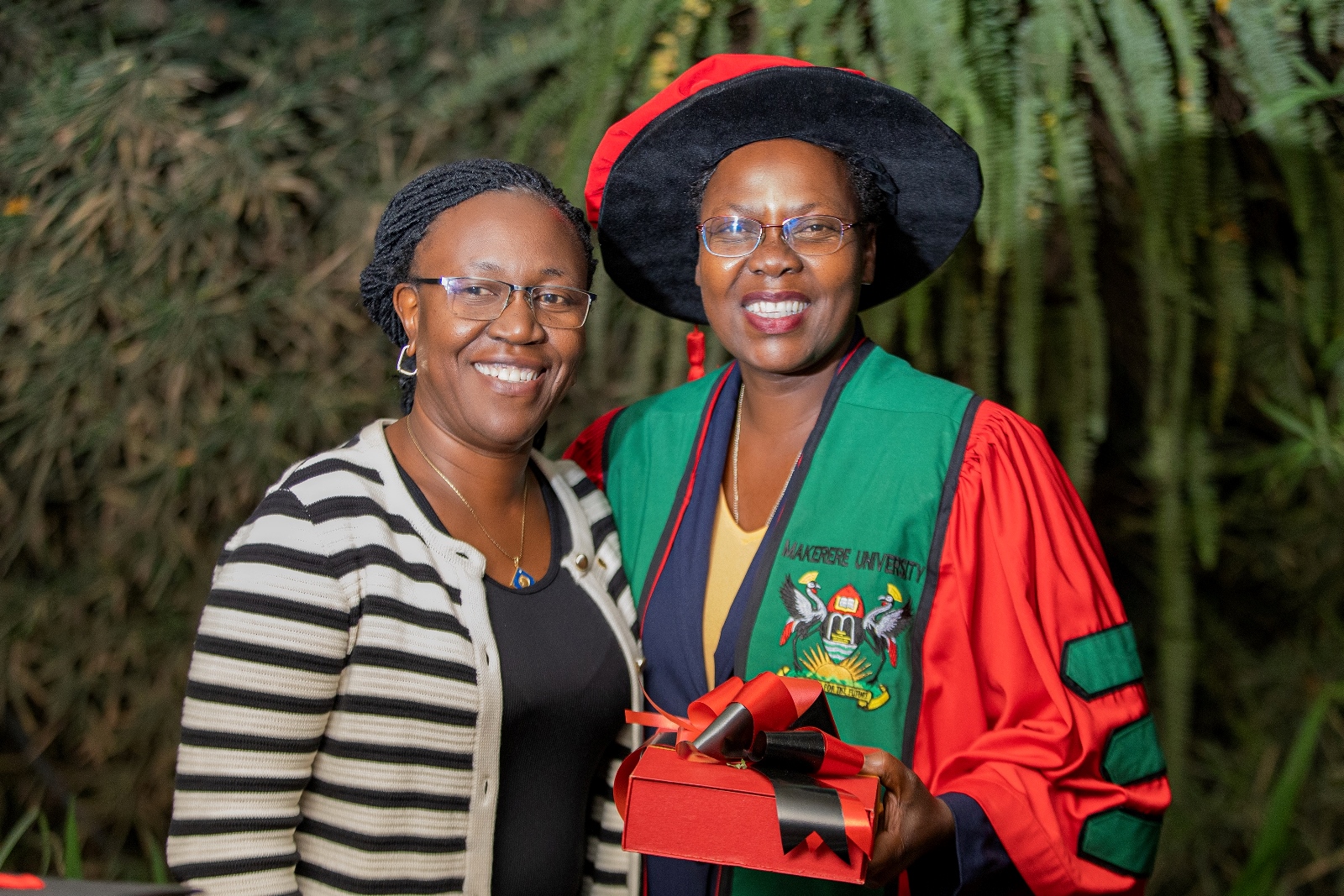
Achola firmly believes that family planning is a cost-effective way for the government of Uganda to reduce maternal and child mortality rates. And that by choosing to space births, mothers bond with their babies and allow themselves time to heal before the next pregnancy, thus allowing their bodies to heal and rejuvenate for the next pregnancy.
“When mothers space their childbirth for at least two years, their health improves, which reduces the risks of pregnancy-related challenges. Babies born with at least a two-year gap have a higher chance of survival than those born less than two years apart,” she stresses.
The next steps…
Achola resonates with the sentiment that “Research never ends.” She recognizes there’s still much to explore in her field and believes her work paves the way for others to examine how culture influences family planning perceptions and practices. This broader perspective can lead to more comprehensive results, with an emphasis on the role of family in decision-making. Achola also imagines future research that will dig deeper into these processes through longitudinal studies with key stakeholders. She also sees the importance of exploring decision-making pathways before applying her findings to larger populations, especially since her study focused on a refugee community in Adjumani, which may differ from other groups in Uganda. For her, the possibilities for further exploration are enormous and stresses that the journey of research is a shared and ongoing adventure. She is, therefore, set to continue with research in this area as a post-doctoral undertaking.
Upon achieving her PhD, Achola feels a renewed sense of determination and purpose in her field. “I will not look back,” she declares with conviction. “I will continue my work in sexual and reproductive health and rights (SRHR) and family planning, where I have developed passion, skills and expertise, positioning me as a leader in this area.”
She is committed to advising government bodies and engaging with the international community and development partners to advance this important field. Additionally, Achola plans to continue teaching in Public Health, nurturing the next generation of specialists and mentoring aspiring doctoral candidates. With her steadfast commitment, she is ready to make a lasting impact, inspiring others to embark on this important journey alongside her.
You may like
-
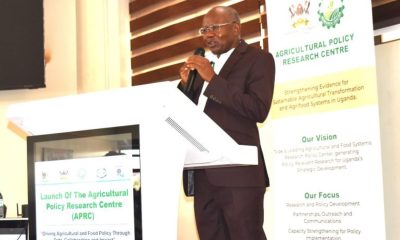

APRC Trains Graduate Students & Stakeholders in the Use of the African Agriculture Adaptation Atlas
-


CARTA Fellow Dr. Oporia Appointed to WHO Global Alliance for Drowning Prevention
-
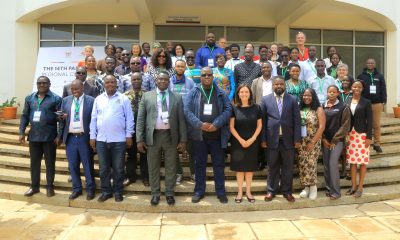

Harmonizing Africa’s Future through Musical Arts Education
-
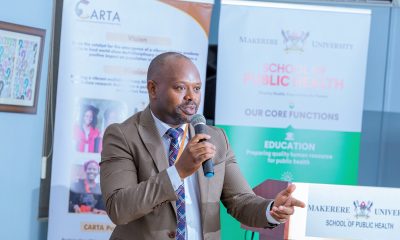

CARTA Focal Person Dr. Isunju Appointed to MakPress Editorial Board
-
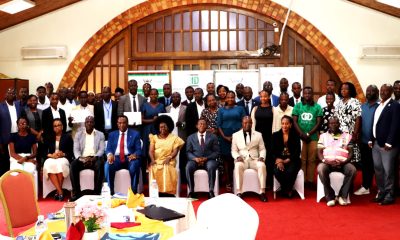

Swedish Ambassador Calls on Uganda to Lead Africa’s E-Mobility Revolution
-
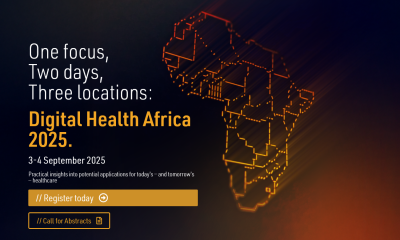

Call for Abstracts: Digital Health Africa 2025
Health
Call for Abstracts: Digital Health Africa 2025
Published
4 days agoon
July 2, 2025By
Mak Editor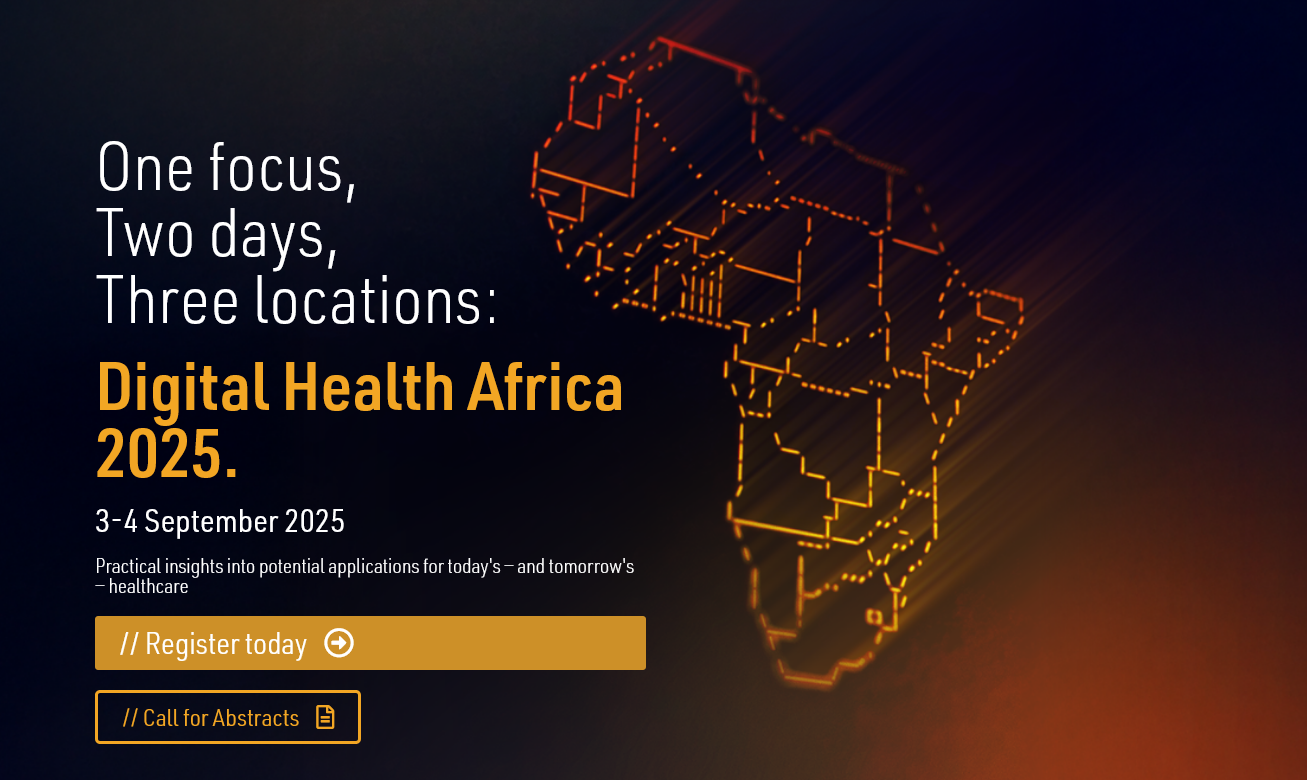
The Digital Health Africa 2025 Conference will provide practical insights in the potential applications of digital technologies, using maternal and child health, as important examples. Topics of interest will include patient registries, safety signals, vaccine use in pregnancy/breastfeeding, labelling of vaccines in pregnancy, emerging infections and antibiotic resistance, telemedicine, pharmacometric modelling, precision medicine, medicines regulation, ethical and legal aspects, and capability enhancement.
Applying an integrated multi-site face-to-face and remote format, this hybrid Conference will use digital tools to allow delegates and speakers from three different regions, South Africa, Uganda and Germany, as well as fully virtual participants to engage with one another. This will offer a nexus for collaboration and networking to promote partnerships among local and international stakeholders as well as capacity building for young scientists. Delegates will have the opportunity to engage with experts from industry, academia, healthcare providers, government and regulatory agencies as well as patient representatives to learn from one another and to gain valuable insights into the latest trends and best practices in digital health.
Abstracts should fit into one of these categories:
- Maternal and Child Health (MCH) & Digital Innovation
- Infectious Diseases & Antimicrobial Resistance (AMR)
- Digital Health Systems & Scaling
- Governance, Data Management & Interoperability
- Artificial Intelligence in Health & Research
- Pharmacometrics & Digital Tools
- Case Studies & Lessons Learned
- Cross-cutting & Strategic Perspectives
Submission deadline: 31st July 2025.
Accepted abstracts will be presented as interactive posters:
- a physical poster presentation at one of the conference sites
- an e-poster (digital version of your physical poster for sharing online)
- a 3-minute recorded presentation to accompany the poster.
Presenters with accepted posters will be offered complementary conference registration.
Submit your poster abstract here: https://forms.gle/aXYHeZSwX2EhEUas5
Health
Emorimor Calls for Makerere to Upgrade Parenting Course
Published
5 days agoon
June 30, 2025By
Zaam Ssali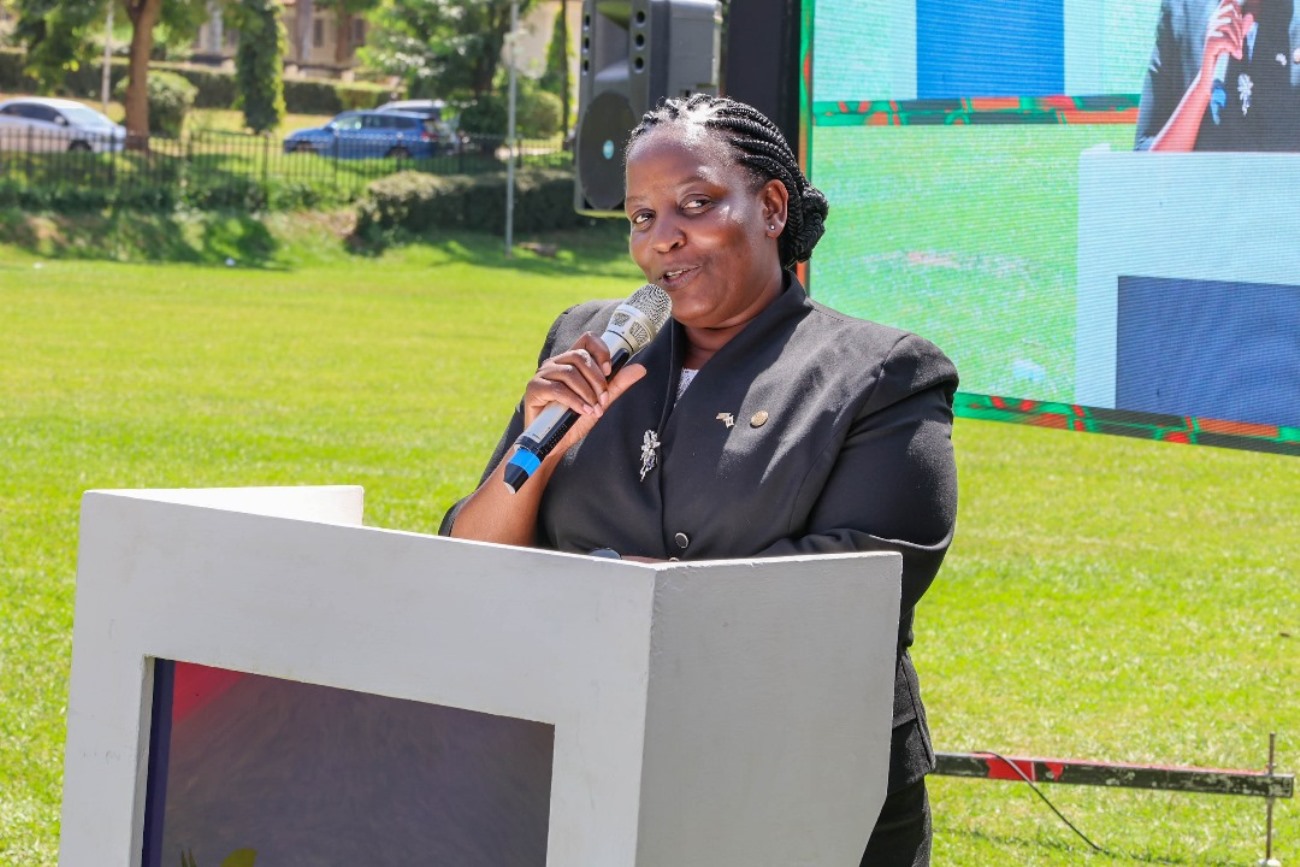
The Iteso Cultural Leader, His Highness Emorimor Papa Paul Sande Emolot, has called on Makerere University to elevate the Science of Designing, Adaptation, and Implementation of Evidence-Based Parenting Interventions course into a fully-fledged programme. This, he argued, would strengthen the capacity of practitioners implementing parenting interventions across Uganda.
Speaking at a graduation ceremony held on 11th June 2025 at Makerere University where 35 practitioners completed the 12-week course, Emorimor Papa Emolot emphasized the transformative power of effective parenting. He urged aspiring parents and advocates of the Parenting for Respectability model to enroll in the course.
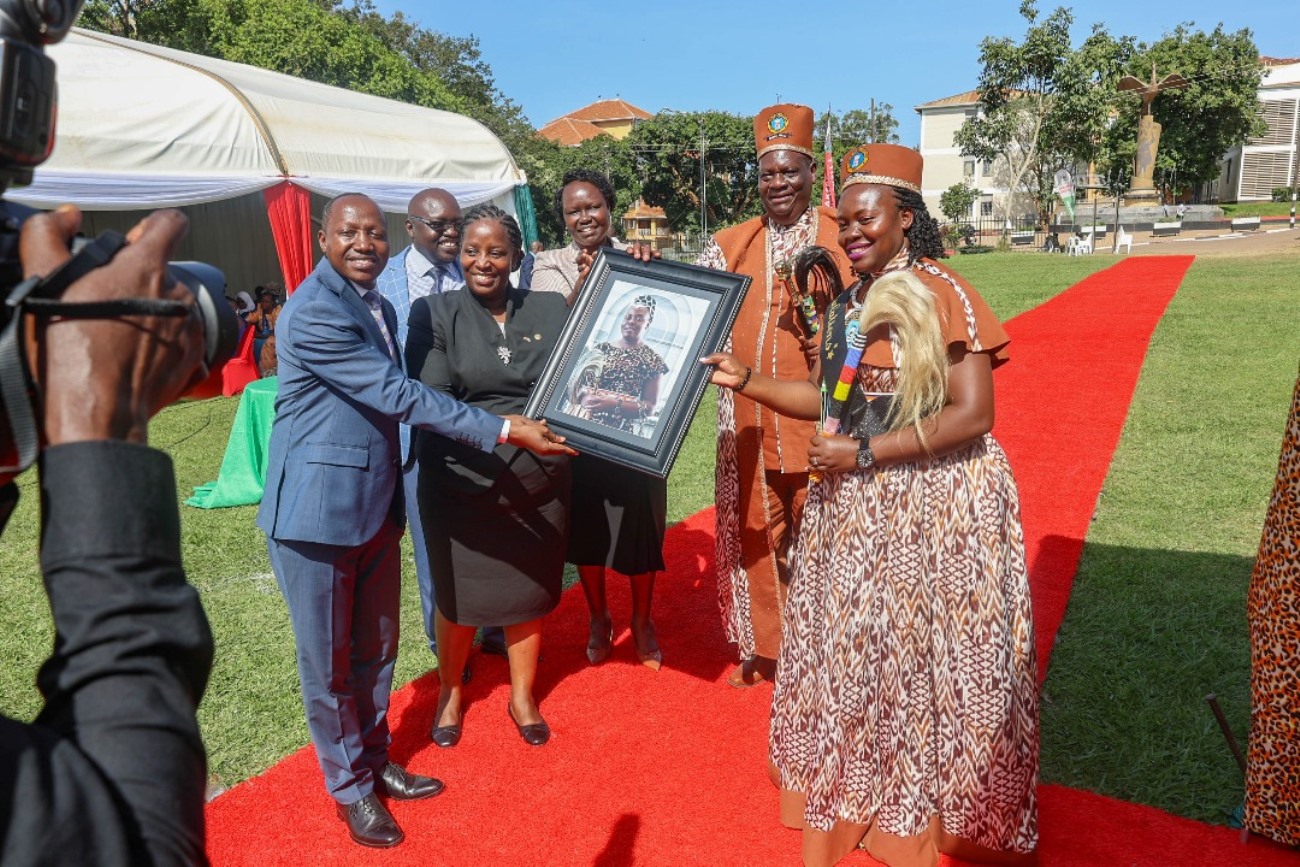
Citing the impact in his own sub-county and village, the cultural leader revealed that over 800 families had already benefited from the programme.
“We now see peace and love in homes where there was once conflict. Without good parenting, you risk raising animals instead of children,” he passionately stated.
He praised the course for equipping practitioners, policymakers, and researchers with the skills needed to design culturally sensitive, evidence-based parenting interventions tailored to Uganda’s context. Among the notable graduates was Her Royal Majesty Juliet Among Emolot Atomeileng Akaliat Toto, who reaffirmed her commitment to advancing family-strengthening initiatives using the skills and knowledge acquired.
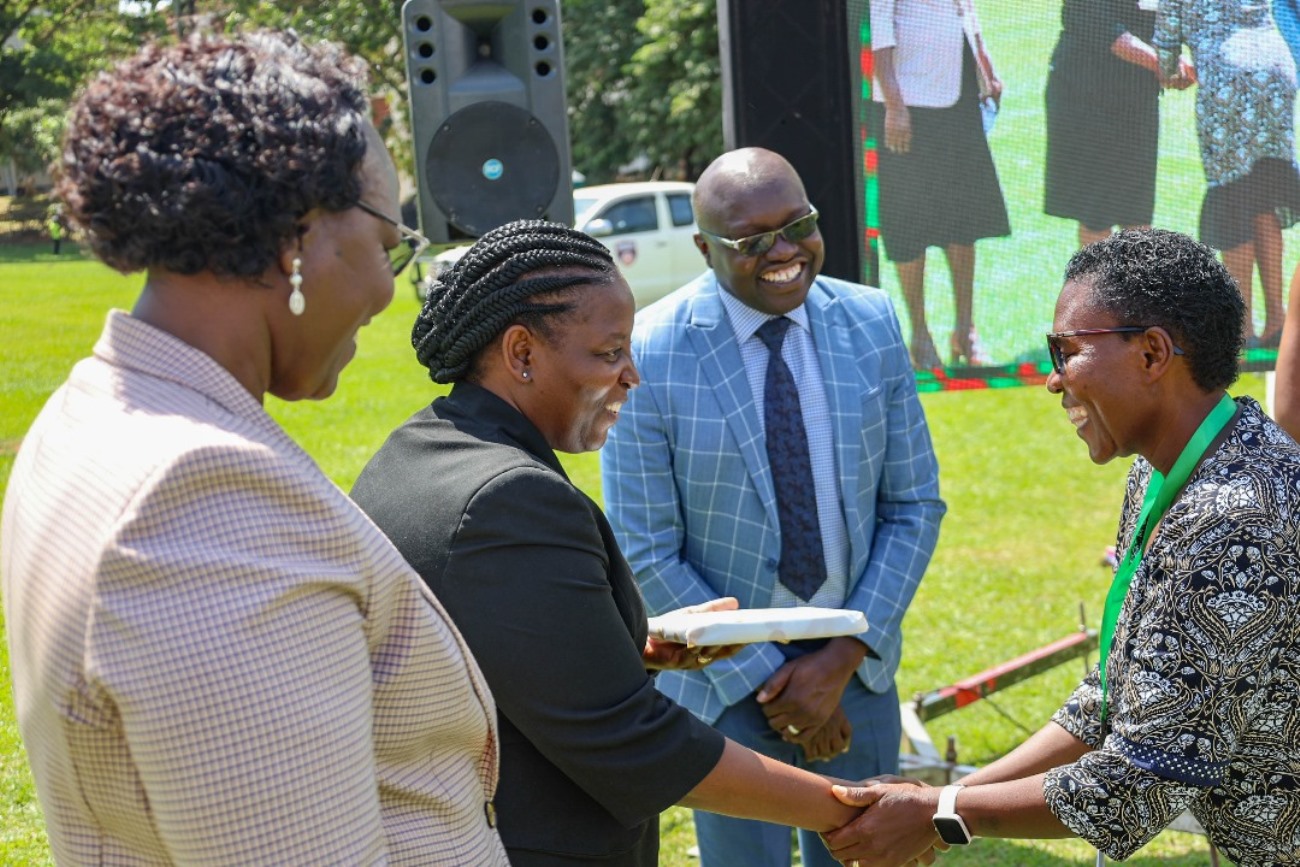
Dr. Godfrey Siu, Senior Lecturer and Course Leader at Makerere University, described the course as a timely intervention. During this remarks, Dr. Siu described the event as a significant milestone in advancing the field of evidence based parenting intervention and family strengthening in Uganda.
“This course is meant to empower you as practitioners, policy makers and all those involved in development and implementation of parenting work. It provides both theoretical knowledge and practical tools essential for developing high quality interventions”, Dr. Siu noted. He urged the pioneer group to carry forward the expertise as champions of designing, adaptation and implementation of evidence parenting interventions.
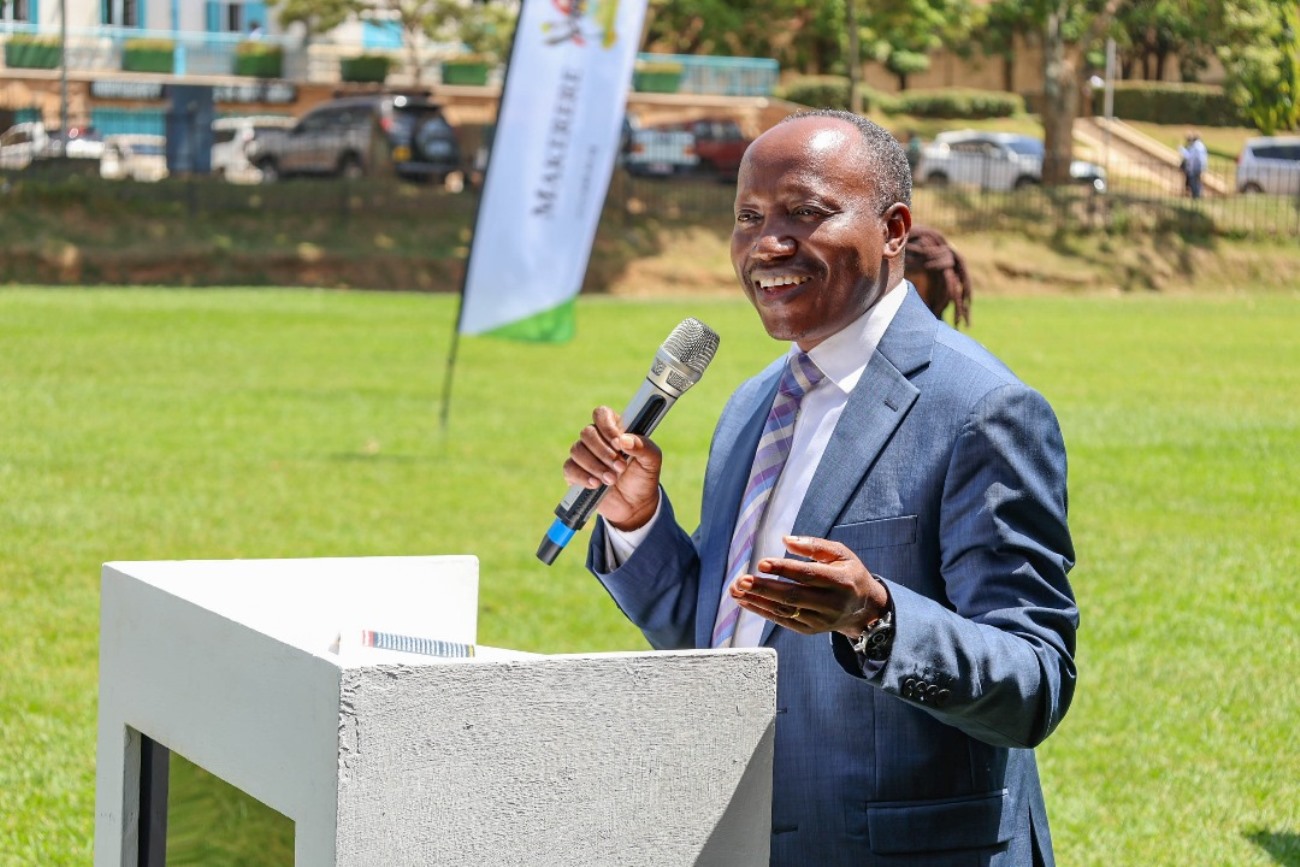
Representing the Permanent Secretary of the Ministry of Gender, Labour and Social Development, Dr. Aggrey David Kibenge, Juliana Naumo, Commissioner for Culture and Family Affairs, said the course supports the government’s agenda to address negative social outcomes affecting families.
“By grounding parenting in research, harmonizing policy with practice, and advocating for equity, we will ensure no family is left behind,” she said. “Cross-sectoral collaboration is key to unlocking transformative change.”
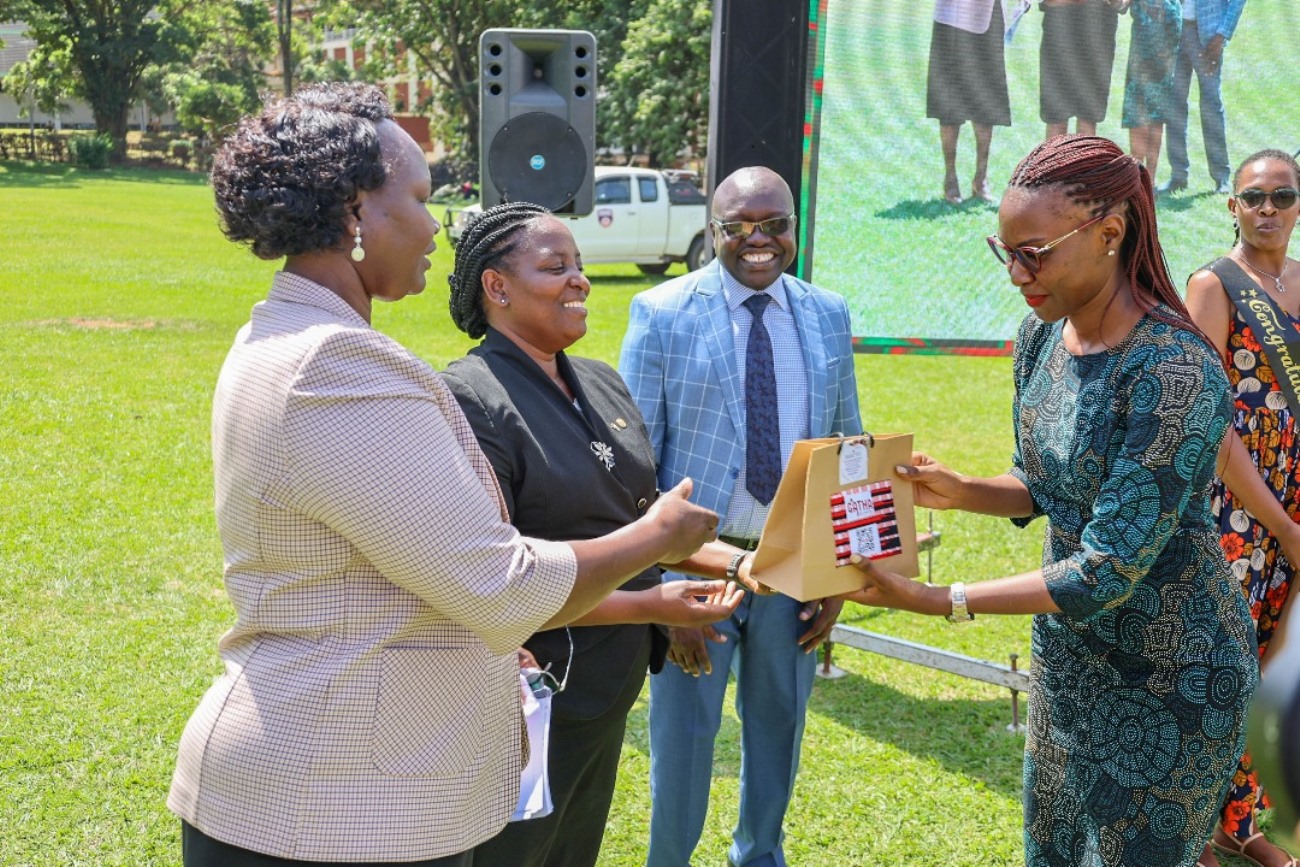
Ms. Naumo highlighted the government’s commitment—both technical and financial—to support outstanding student projects from the course. She stressed the importance of equipping professionals with the skills to bridge gaps between research and practice for consistent, high-quality parenting support across Uganda. While delivering the Vice chancellors speech by Dr. Helen Nambalirwa, Principal of the CHUSS, Prof. Barnabas Nawangwe commended the graduates as a beacon of hope.
“At a time when parenting faces challenges like digital distractions, changing societal norms, and a rising mental health crisis, Makerere reaffirms its support for interventions that drive the societal transformation we desire,” Nawangwe stated.
Prof. Richard Idro, Deputy Principal of the College of Health Sciences, acknowledged the growing parenting challenges in Uganda and the region, adding that the course was a major step towards standardizing parenting interventions nationwide.

He applauded the Child Health and Development Centre (CHDC) for leading this paramount and critical initiative.
Mr. Hosea Katende, Course Administrator at CHDC, emphasized the importance of integrating systematic methods, ethical principles, robust evidence, and collaboration to create lasting impact in parenting.
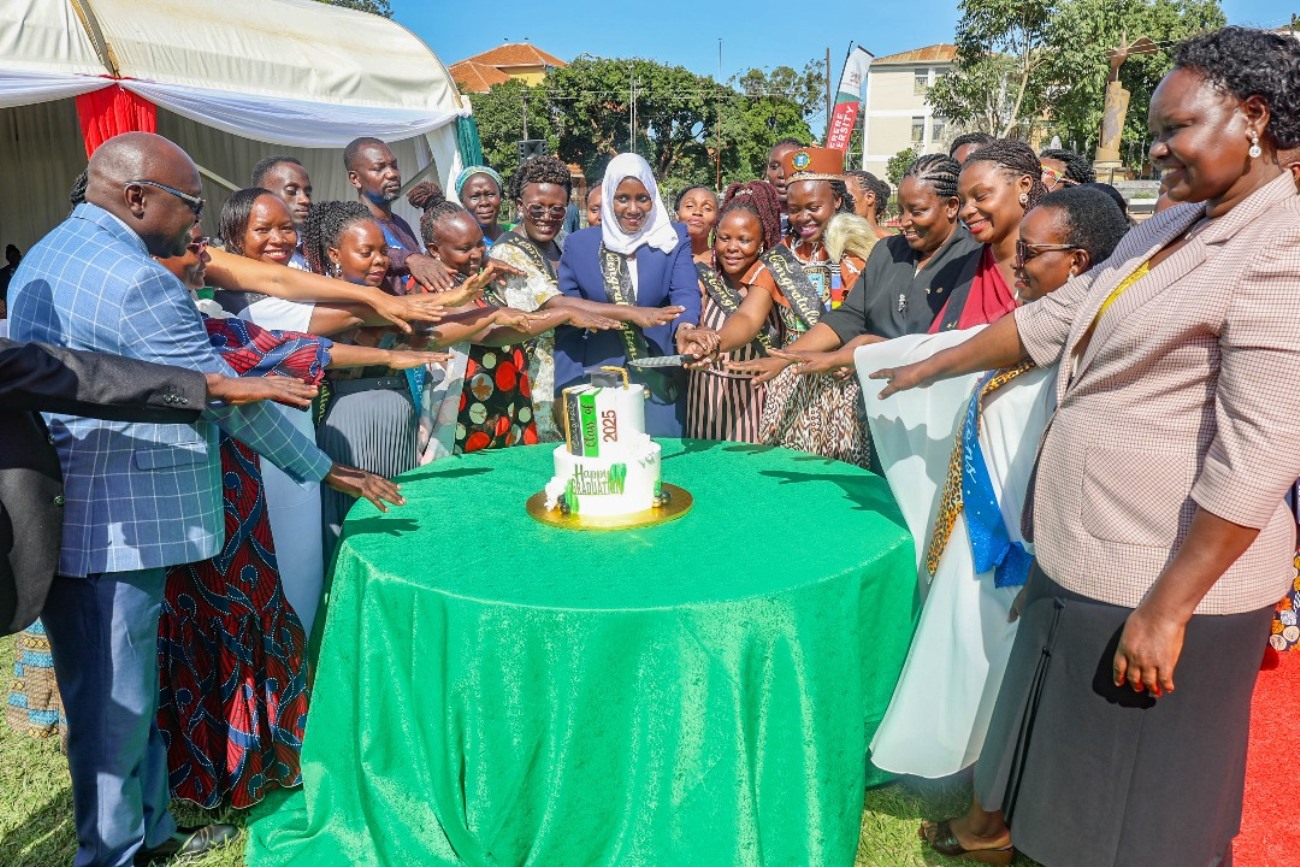
Dr. Aggrey Dhabangi, Lecturer at CHDC, representing Dr. Herbert Muyinda, Director of CHDC, acknowledged the contributions of partners such as the ELMA Foundation and Echidna Giving for their financial and capacity-building support. He also appreciated the Ministry of Gender, Labour and Social Development, among other stakeholders, for their technical guidance in the programme’s successful implementation.
Dr. Dhabangi extended gratitude to cultural institutions, especially the Kingdom of Teso, and acknowledged growing collaborations with other cultural institutions such as the Kingdom of Acholi, in the shared mission of building strong families as the foundation of Uganda’s future.
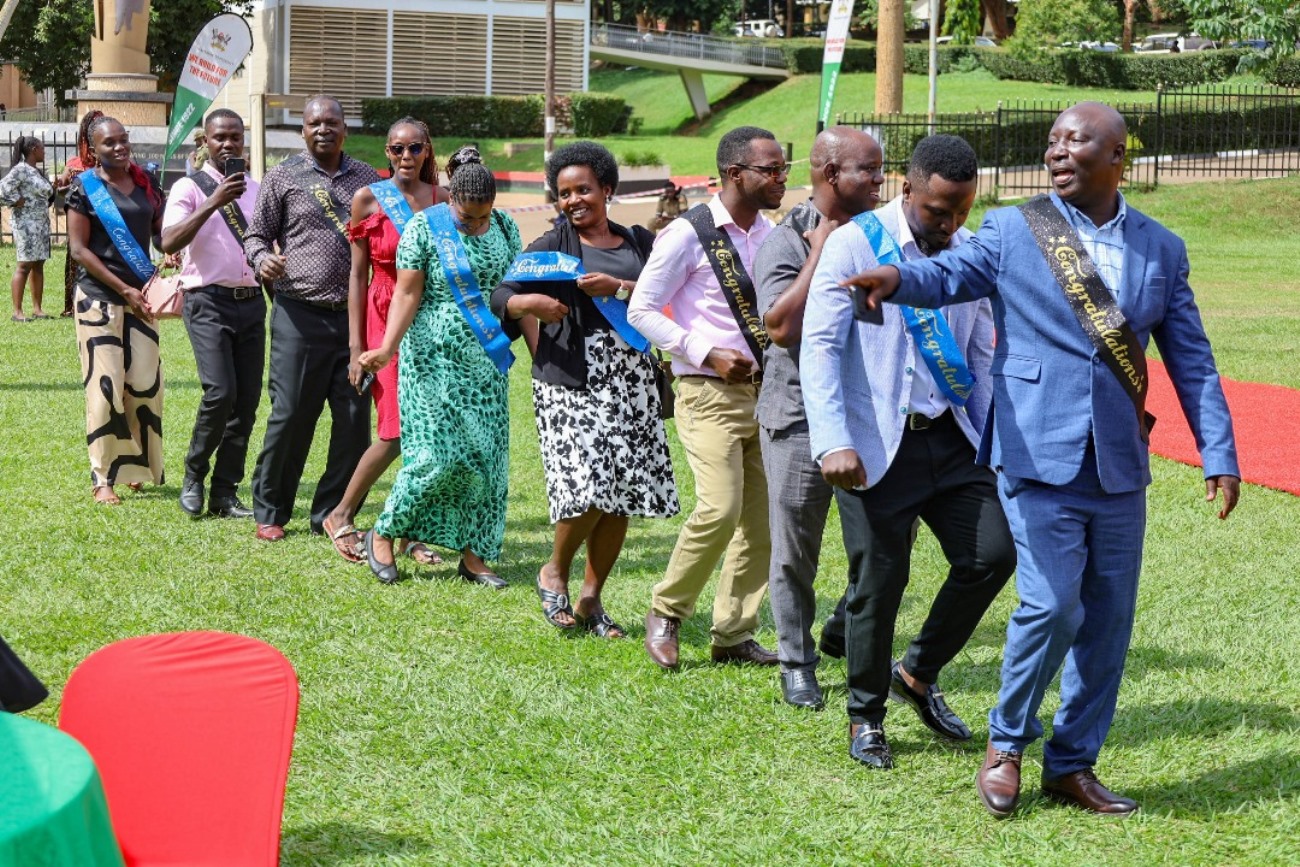
He extended his heartfelt gratitude to cultural institutions, especially the Kingdom of Teso, and others kingdoms such as the Kingdom of Acholi, in building Uganda’s future through creating strong families. Nuruh Mbalyowere, a Rehabilitation and Reintegration Officer with the Uganda Prisons Service, was honored for developing the best parenting intervention titled “Parenting Behind Prison Bars.” She expressed her intention to apply the knowledge gained both at home and in her workplace.
Health
MakSPH, DJC Launch Short Course on Health Communication
Published
2 weeks agoon
June 20, 2025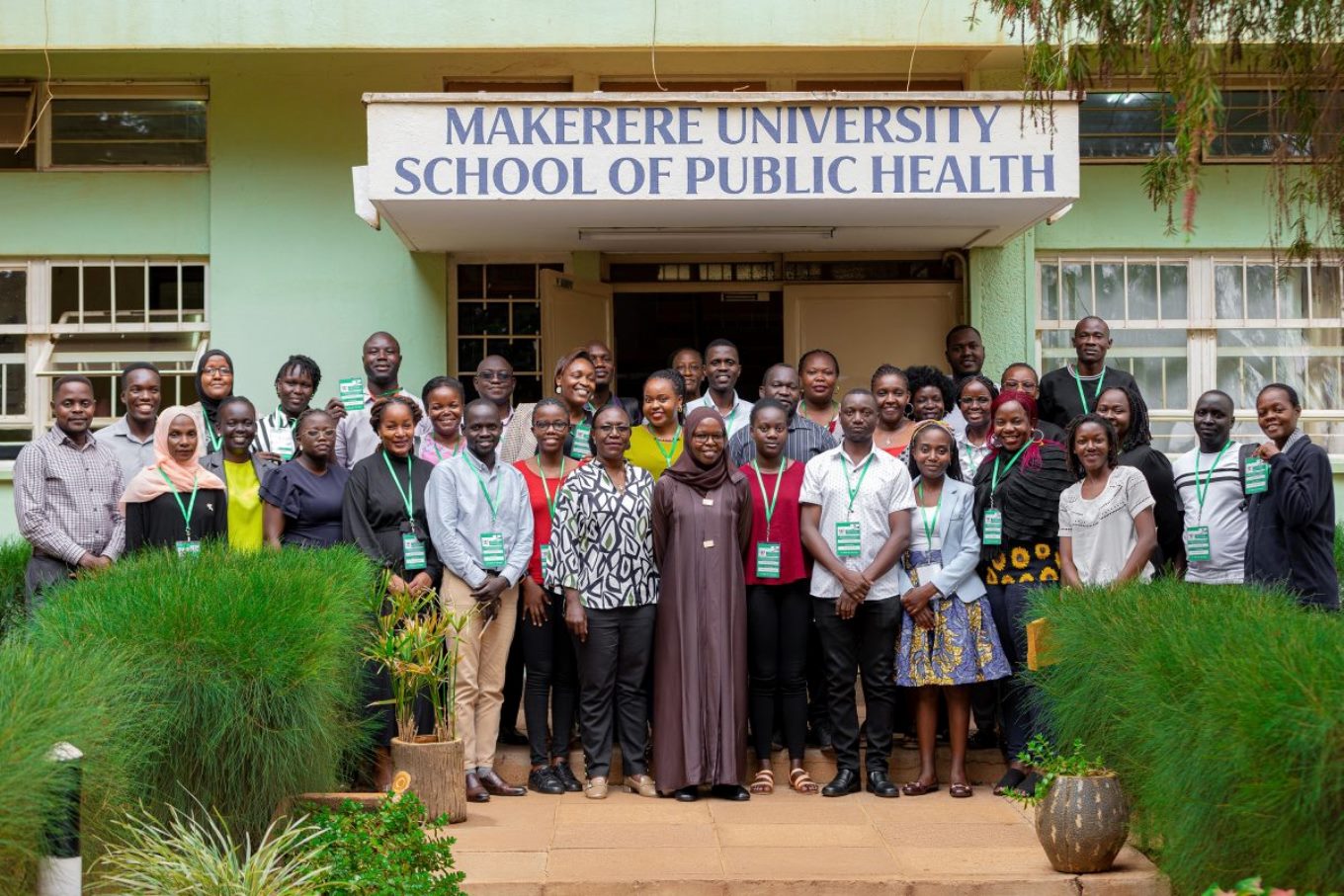
By Okeya John and Primrose Nabankema
The intensive one-month course, running for the first time from June 5 to July 24, 2025, is jointly offered by Makerere University School of Public Health (MakSPH)’s Department of Community Health and Behavioural Sciences (CHBS) and the Department of Journalism and Communication (DJC) at the School of Languages, Literature, and Communication (SLLC), co-designed in 2024 with support from the Rockefeller Foundation through Amref Health Africa.
It seeks to equip healthcare providers at the community level, public health and environmental health practitioners, communication specialists, health educators, community development officers, social scientists, and policy makers, among others, with strategic communication skills to improve public health messaging, strengthen community engagement, and support evidence-based interventions, ultimately empowering participants to effectively engage communities and improve population health outcomes across Uganda and the region.
Launching the course, the heads of the Department of Journalism and Communication and the Department of Community Health and Behavioural Sciences noted that participants who complete the short course will gain practical tools to influence behaviour change, build trust, and deliver timely, accurate, and relevant health information to the communities they serve. The first cohort attracted more than 60 applicants, with 36 reporting for the opening in-person session on June 5, 2025, at MakSPH in Mulago. Between now and July, participants will undergo a hands-on, multidisciplinary learning experience within the Certificate in Health Communication and Community Engagement program, which combines theory and practice.
Among the participants in the first cohort of the certificate course, designed as a pilot for the anticipated Master of Health Promotion and Communication to be jointly offered by the two departments at Makerere University, is Ms. Maureen Kisaakye, a medical laboratory technologist specialising in microbiology and antimicrobial resistance (AMR), and currently pursuing a Master’s in Immunology and Clinical Microbiology at Makerere. She is driven by a passion to help reverse the rising tide of AMR, a growing global health threat where drugs that once worked are no longer effective. Kisaakye is particularly concerned about common infections, like urinary tract infections, becoming increasingly resistant and harder to treat.
“I enrolled in this course because I’m an advocate against antimicrobial resistance, and it came at a time when I needed to deepen my knowledge on how to implement our projects more effectively and engage with communities. The experience has broadened my understanding of AMR and its impact on society, and strengthened my passion for community-driven health initiatives and advocacy,” Kisaakye said, explaining why she enrolled for the short course.
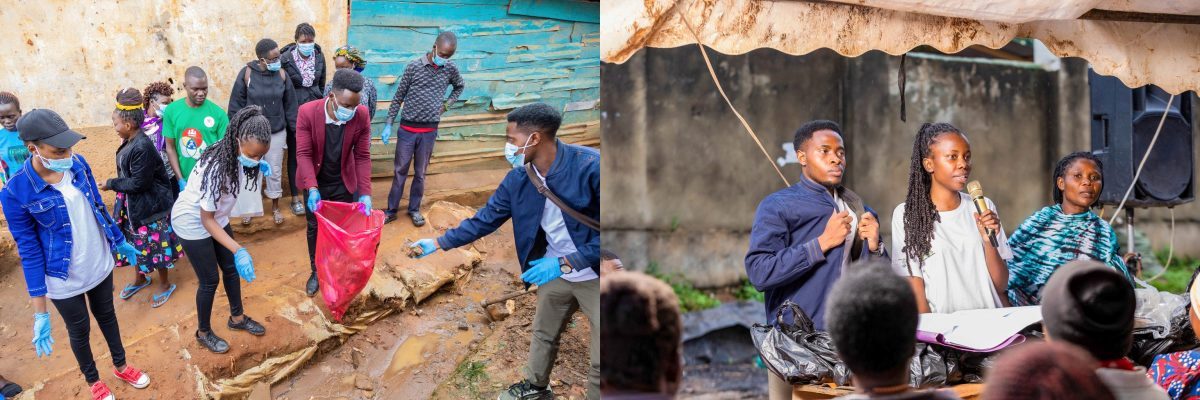
Kisaakye’s work in antimicrobial resistance extends beyond the lab. Having earned her degree in medical laboratory science from Mbarara University of Science and Technology, she founded Impala Tech Research in 2024 to drive impact and save lives. She has led grassroots AMR campaigns that integrate antimicrobial stewardship with water, sanitation, and hygiene (WASH) education in underserved urban communities, including the informal settlements in Kampala. She also has since designed peer-led initiatives that empower university students as AMR Champions, building a network of informed youth advocates. Kisaakye believes the health communication course will sharpen her ability to design and deliver impactful, community-centred interventions in response to the growing threat of drug resistance.
“The department collaborates with many partners within and beyond the University, including the School of Public Health, where we are working to develop the subfield of health communication and promotion. Our goal is to train specialists in this area and build a community of practice, something we have each been doing in our own spaces. There’s a lot of work ahead, and COVID-19 showed us just how urgently we need a generation trained to do this kind of work, and to do it very well,” said Dr. Aisha Nakiwala, Head of the Department of Journalism and Communication, during the opening of the short course on June 5.
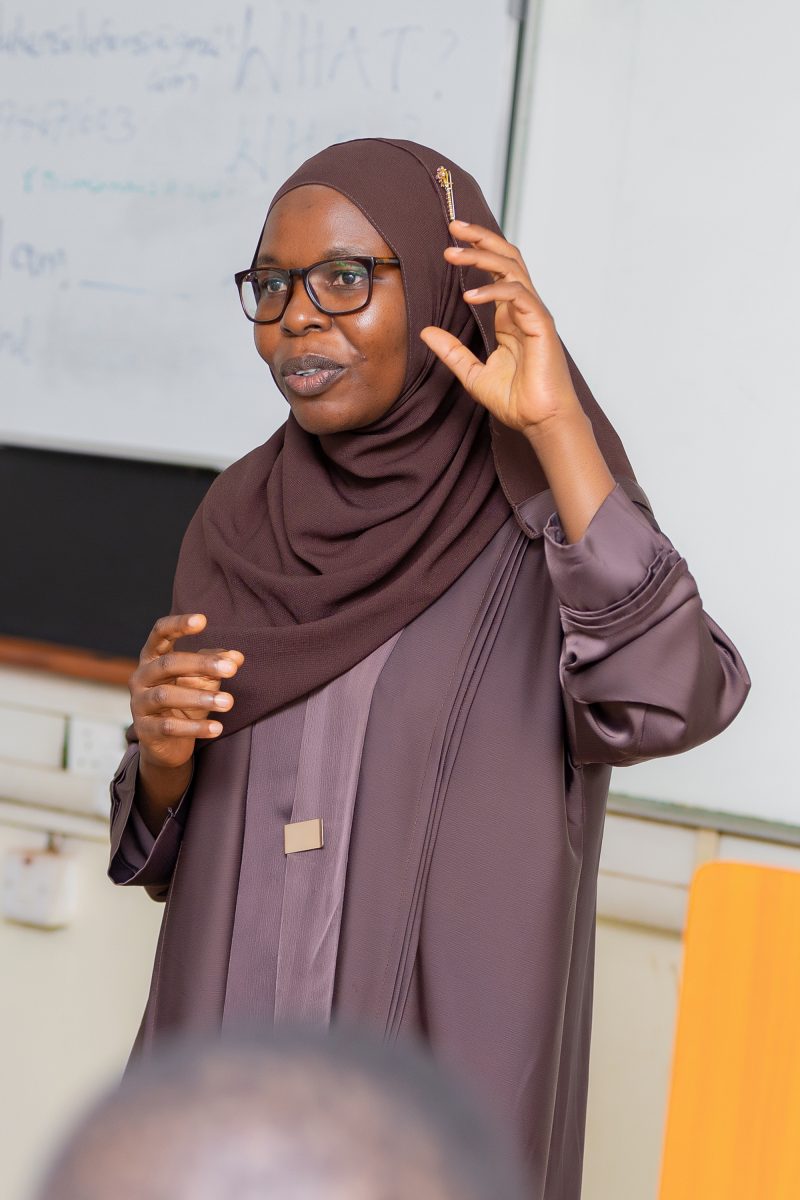
She assured participants they were in good hands and underscored the importance of the partnership between the Department of Journalism and Communication and the School of Public Health, describing it as a vital collaboration that brings together strategic communication and public health expertise. This dynamic, multidisciplinary approach, she noted, is essential to developing practical solutions that empower communities, strengthen health systems, and ultimately improve livelihoods.
The course offers a hands-on, multidisciplinary learning experience, with participants intended to explore key modules including Health Communication and Promotion, Risk Communication, Smart Advocacy, Community Mapping, Community Mobilisation and Empowerment, and Strategies for Community Engagement. The course combines theory with real-world application, and its assessment includes a field-based project and a final exam.
“You are our first cohort. We are seeing the fruits of our efforts in bringing this short course to life. It was born out of a joint initiative to develop a Master’s programme in Health Promotion and Communication,” said Dr. Christine Nalwadda, Head of the Department of Community Health and Behavioural Sciences. “We carried out extensive consultations with our different key stakeholders during the process and discovered a real need for such a course. It was the stakeholders who even named it; this course name didn’t come from us.”
For Kisaakye, by the end of the course in July, she hopes to have sharpened her skills in health promotion and strategic communication, particularly in crafting targeted messages that help individuals and communities effectively respond to threats such as antimicrobial resistance. She also aims to gain practical experience in designing, implementing, and evaluating community health initiatives that can strengthen her advocacy and drive lasting impact.
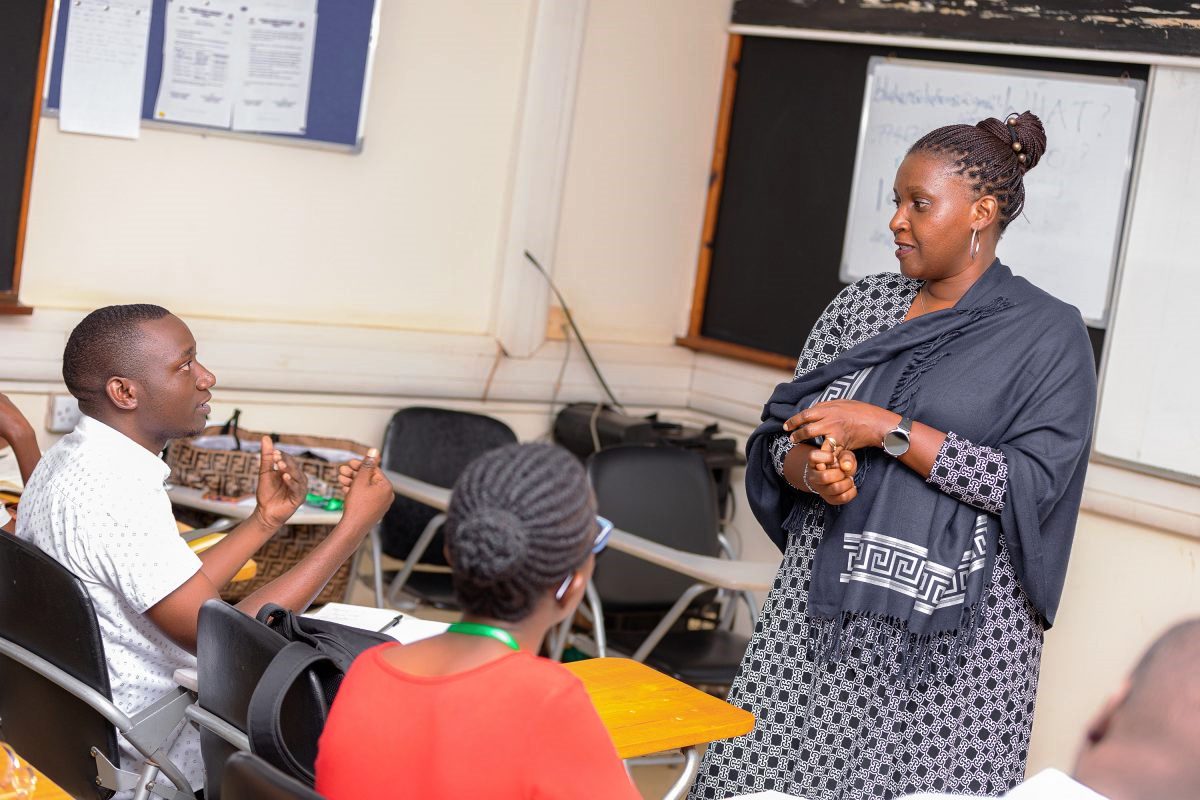
Trending
-

 Education1 day ago
Education1 day agoAdmission List to Bachelor of Education External (BED) 2025/26 -Private Sponsorship
-

 General1 week ago
General1 week agoMature Age Scheme Exam Results for 2025/2026
-

 General2 weeks ago
General2 weeks agoFreshers’ Joining Instructions 2025/2026
-

 General4 days ago
General4 days agoUndergraduate Admission List Self Sponsorship Scheme 2025/2026
-

 General2 weeks ago
General2 weeks agoMastercard Foundation Board pays its inaugural visit to Makerere University
